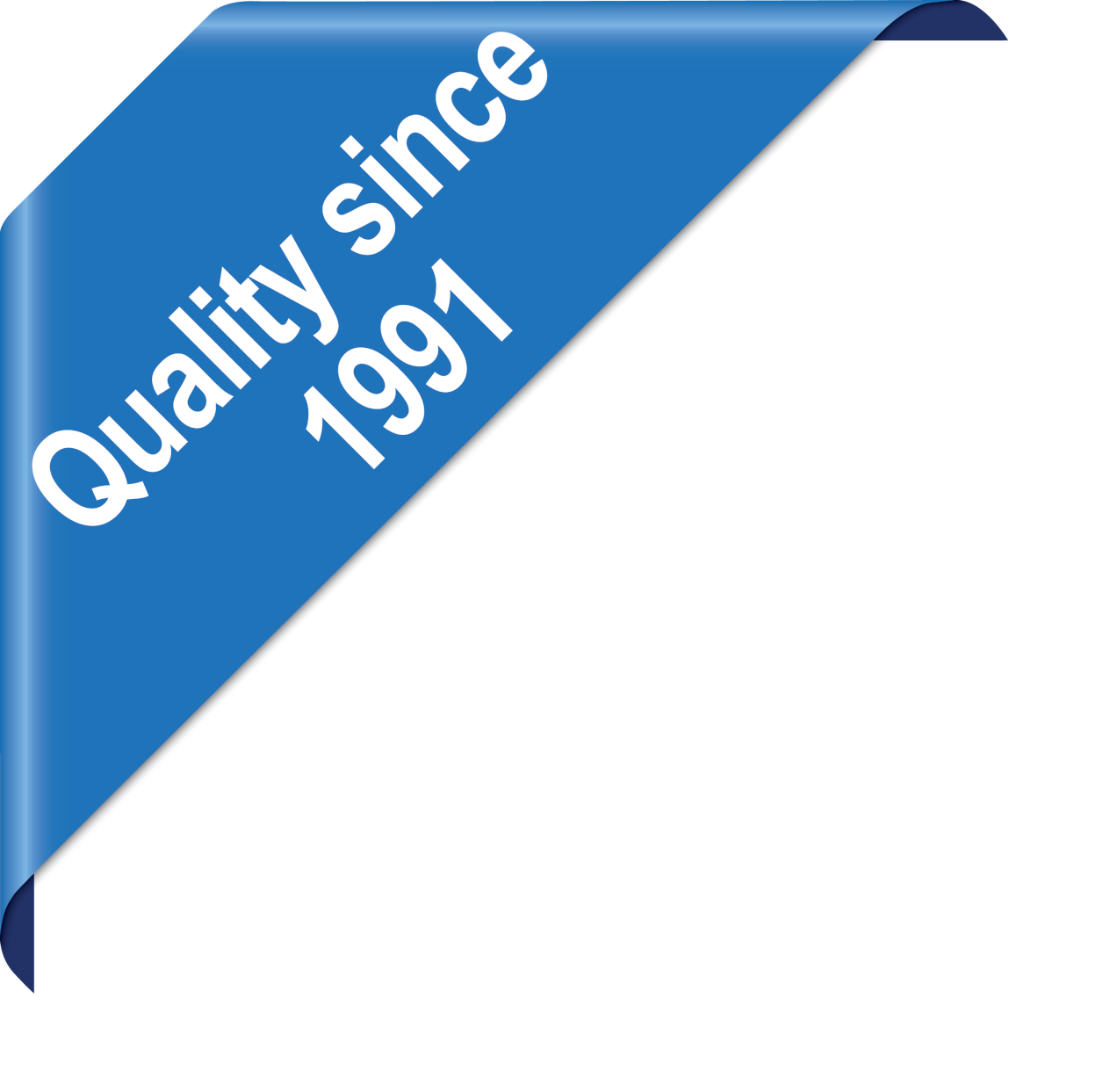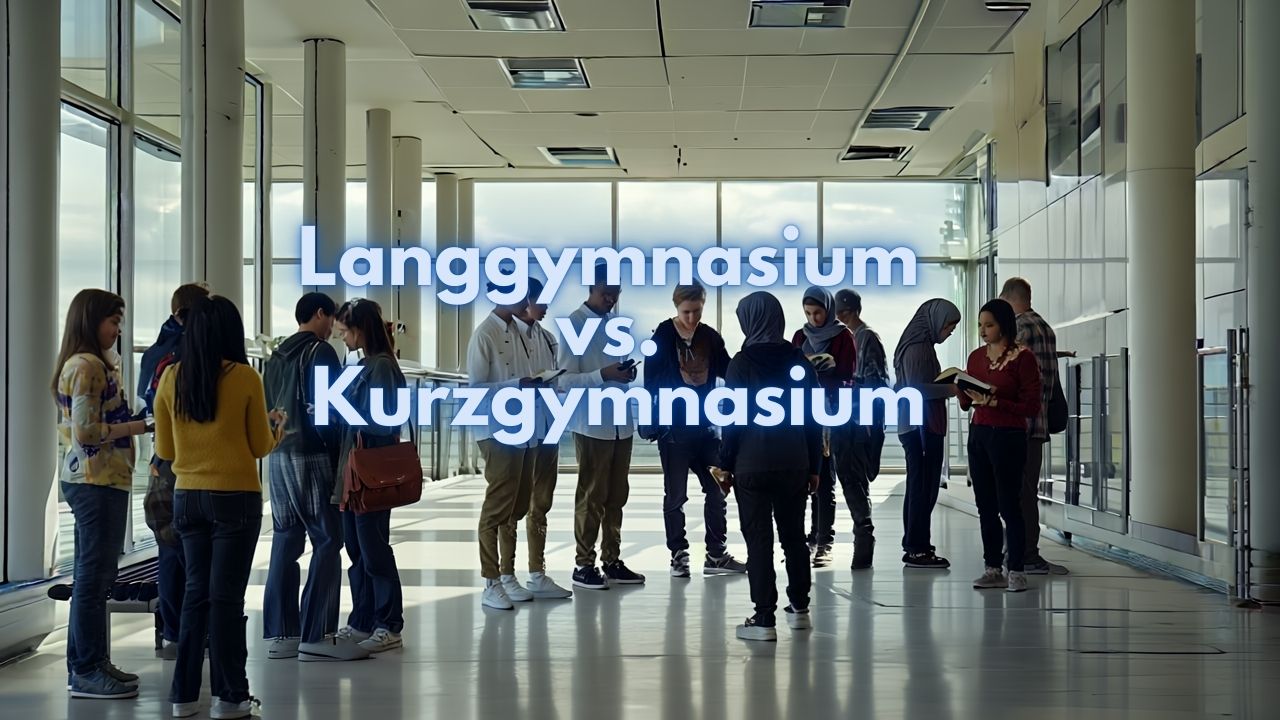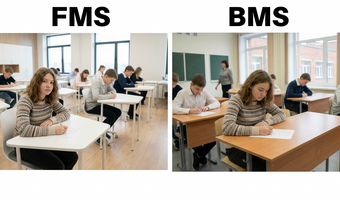

Difference long-term and short-term grammar school Zurich - which is better?
Anyone who wants to attend a Gymnasium (grammar school) in the canton of Zurich must decide whether they want to transfer to the long-term grammar school (long-term Gymnasium) or the short-term grammar school (short-term Gymnasium). The following article explains the difference between long-term grammar school and short-term grammar school and which of the two types of Gymnasium is better suited to your child.
Start preparing for grammar school now
Table of contents
Difference between long-term and short-term grammar school in Zurich
One of the key differences between the long-term grammar school and the short-term grammar school in the canton of Zurich is Latin lessons, which are compulsory in the first two years of the long-term Gymnasium. At the short grammar school Latin is not a compulsory subject. In fact, you can completely avoid Latin at the short-term grammar school by not choosing it as a major subject (classical languages profile), basic subject, or optional matriculation subject.
Those who nevertheless decide to study Latin at a short-term Gymnasium – provided that it is offered as an elective language at the respective school – can choose Latin as a major subject in the classical languages profile, as in the third year of the long-term Gymnasium, or as a basic subject, which is recognized by the University of Zurich, for example, as a “Latinum”, provided that they continue to study Latin until graduation.
Read also our article «All grammar schools in the canton of Zurich and their grammar school profiles».
The University of Zurich (UZH), for example, does not require more than this “Latinum” from the short-term Gymnasium, which is why, from a purely formal point of view, having a “Latinum” from the long-term Gymnasium (2 years of basic subjects + 4 years of specialization or 6 years of basic subjects) does not give you any advantage at UZH.
By the way, Latin can also be studied at the Gymnasium as an optional Matura subject as part of an elective course or Facultative course and thus prove the required «Latinum» at the University of Zurich, for example, provided that the Course is attended to the required extent and until the end of school.
Another difference between long-term and short-term grammar school is when they start and how long they last. Students enter long-term grammar school after successfully passing the Gymnasium entrance exam after the 6th grade of primary school and remain there for 6 years until they graduate with the federal Baccalaureate. In contrast, students can only transfer to short-term grammar school after the second or third year of secondary school, provided they have passed the central entrance exam (ZAP, Gymnasium entrance exam), with short-term grammar school lasting a total of four years until graduation with the federal Baccalaureate.
The federal Baccalaureate from the long and short grammar school programs is therefore equivalent in substance. Both grammar school diplomas allow students to study at a university, the Swiss Federal Institute of Technology (ETH), or a teacher training college (PH), although there are admission restrictions or numerus clausus procedures for certain subjects, such as medicine, for which an aptitude test is usually required.
| Long-term grammar school | Short-term grammar school | |
| Start | after 6th primary school class | after 2nd or 3rd secondary class |
| Length of time | 6 years | 4 years |
| Latin | first 2 years compulsory | never compulsory |
| Probationary period | first 6 months | first 6 months |
| Diploma | Federal Baccalaureate | Federal Baccalaureate |
| Access | University, ETH, PH | University, ETH, PH |
| Latin | Major subject (4 years) or basic subject (6 years) or optional Matura subject (if the course is sufficient) | Major subject (4 years) or basic subject (4 years) or optional Matura subject (if the course is sufficient) |
Excursus: Compulsory Latin at Swiss universities
Although compulsory Latin (Latin obligation) has gradually been abolished for many subjects at various Swiss universities, there are still certain subjects at universities in Switzerland where knowledge of Latin must be demonstrated, sometimes at different levels. The University of Zurich, for example, distinguishes between two levels: “Basic Latin” and “Latin II (Latinum)”.
The regulations regarding compulsory Latin can vary from university to university. Those who do not have the necessary Latin skills can usually acquire them before or during their studies.
Basically, it can be said that compulsory Latin skills are required in various language and literature studies and in history, as well as in subjects dealing with antiquity, art, the Middle Ages, music, or religion. The best way to find out exactly which subjects are affected by the compulsory Latin requirement is to contact the university where you wish to study. The University of Zurich has published the subjects with compulsory Latin on its website. Incidentally, compulsory Latin was abolished for medical studies in Zurich back in 1968. For the subjects of German linguistics, English language and literature, philosophy, and art history, compulsory Latin was abolished at UZH in 2015.
There are also subjects that require knowledge of Greek in addition to Latin, and theological subjects often also require knowledge of Hebrew.
Incidentally, Latin is often required not only for the major subject, but also for the minor subject.
Which is better for the child, long-term grammar school or short-term grammar school?
When considering the question of what is better for the child, the long or the short grammar school, the following points should be considered: Students who transfer to a long-term grammar school after the sixth grade of elementary school have less time to consider whether grammar school is really right for them. However, they have more time to learn the grammar school curriculum, namely six years instead of four.
In addition, students at the long-term grammar school do not have to change schools again after a short time, whereas students who want to transfer to the short-term grammar school first have to attend secondary school for two or three years after primary school and then settle into a new school environment at the short-term grammar school.
On the other hand, transferring to a long-term grammar school after the sixth grade of primary school requires a high degree of independence at a very young age, the ability to cope with stress due to the Gymnasium entrance exam and subsequent probationary period – neither of which exist when transferring to secondary school – and the ability to adapt to a new type of teacher, who are more subject teachers than educators at grammar school.
The City of Zurich's Career Center recommends transferring to middle schools, which include grammar schools, only if the child meets the following requirements:
- likes going to school
- can learn easily and independently
- maintains a rapid learning pace
- enjoys and is good at using language
- is characterized by persistence and perseverance
- is interested in theoretical questions and enjoys them
- interested in various topics
- concentrated work even under pressure
- still has time for a life outside of school
- has an average grade of at least 5
You may also be interested in the following article: «Secondary school or grammar school (Sek or Gymi): Which is better for the child?»
Conclusion: Long-term Gymnasium better for Latin speakers
Although the importance of Latin has declined at universities and thus also at secondary schools, as there are fewer subjects requiring proof of Latin proficiency (compulsory Latin). Nevertheless, Latin remains compulsory for certain subjects and important as a foundation for many European languages and as a gateway to historical and scientific source texts.
Although it is sufficient to prove Latin proficiency at the Latinum level by demonstrating that Latin was a major subject in your grammar school diploma, which is possible at both long-term and short-term grammar school. As Latin is a so-called dead language, which is not spoken but only written and read, it is much more time consuming to develop a routine for Latin vocabulary and grammar.
Children who wish to study a subject in which knowledge of Latin is still compulsory should therefore familiarize themselves with the language at an early age and attend a long-term grammar school, where they can study Latin for six years instead of the maximum of four years available at a short-term grammar school.
Register now for a gymnasium preparation course
Sources
- Gymnasium preparation Zurich - Preparatory courses for every need - Lern-Forum (last accessed: August 15, 2025)
- Latin and Greek | Faculty of Arts and Social Sciences | UZH (last accessed: August 15, 2025)
- All grammar schools in the canton of Zurich and their grammar school profiles (last accessed: August 15, 2025)
- Latin – Literary Grammar School Rämibühl (last accessed: August 15, 2025)
- Numerus Clausus, admission restrictions - career advice (last accessed: August 15, 2025)
- Gymnasium preparation 4th grade - Preparation courses Zurich - Lern-Forum (last accessed: August 15, 2025)
- University of Zurich abolishes Latin requirement for further subjects | NZZ (last accessed: August 15, 2025)
- Compulsory Latin at Swiss universities (last accessed: August 15, 2025)
- Transfer to Upper School | City of Zurich (last accessed: August 15, 2025)
- Secondary school or grammar school (Sek or Gymi): Which is better for the child? (last accessed: August 15, 2025)

Apprenticeship aptitude test: What tests are available?
Apprenticeship aptitude test: occupation-neutral tests, aptitude tests for specific occupational fields, specific occupations/apprenticeships, in-house tests.
Is simultaneous registration for FMS and BMS exams possible?
Is it possible to register for FMS and BMS at the same time; is it still possible to register for the short-term grammar school exam and which exams are easier.
Value shift: Boomers vs. Gen Z: Workaholics vs Leisure fans
Boomers vs Gen Z: While boomers tend to workaholics on verge of burnout, Generation Z prefers meaningful work and leisure time; we explain this value shift.


